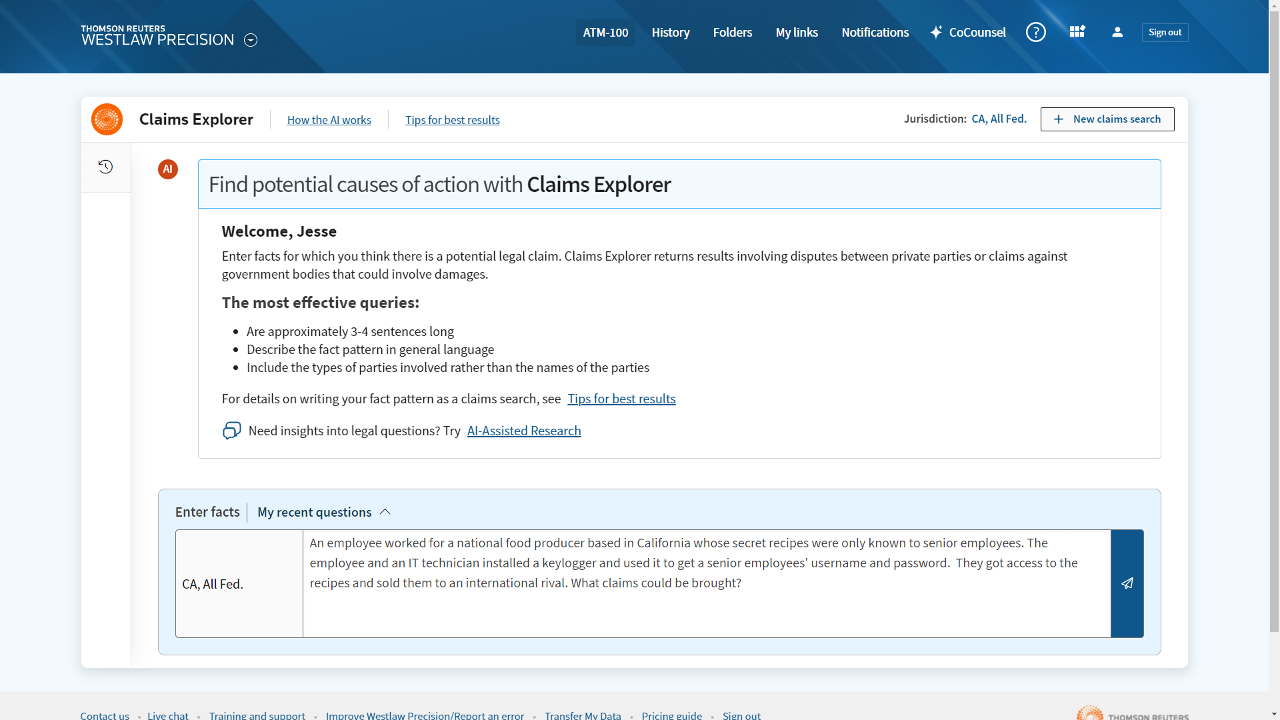Claims Explorer: The Latest Generative AI Skill in Westlaw Precision with CoCounsel

Today Thomson Reuters introduced Claims Explorer, a new generative AI skill available in Westlaw Precision with CoCounsel, that simplifies claims research, saves time, and reduces the risk of missing an important cause of action.
The new skill enables legal professionals to enter facts and identify applicable claims or counterclaims. Using generative AI to simplify claims research, users enter facts and quickly receive a list of applicable claims.
For legal professionals filing a lawsuit, defending a lawsuit, or advising clients on potential liability, often their first step is to identify applicable claims or counterclaims. Yet not all claims are equal. Some causes of action have a lower threshold to achieve, some provide for attorneys’ fees or higher damages, and some fit better with the facts of a particular case.
Enabling legal professionals to find the strongest claims for their matter and avoid missing those relevant to their case is more important than ever.
“In our survey with attorneys about claims research, 69% reported taking cases they would have rejected had they fully understood the value of the claims, and 23% rejected new business based on a lack of a cause of action where they found later that a valid claim existed,” said Mike Dahn, head of Westlaw Product Management, Thomson Reuters.
“Claims Explorer solves significant research problems in a way that GenAI alone has trouble with,” noted Dahn. “We have a long history of delivering solutions that combine trusted editorial expertise, cutting-edge technology, and a strong focus on the needs of our customers. With GenAI, we’re just getting started. This technology has so much promise, and when combined with editorial work, we’re excited about all we’re doing now and will do in the near future.”
For more on the new skill, check out Westlaw Precision with CoCounsel or visit the Thomson Reuters Innovation blog.